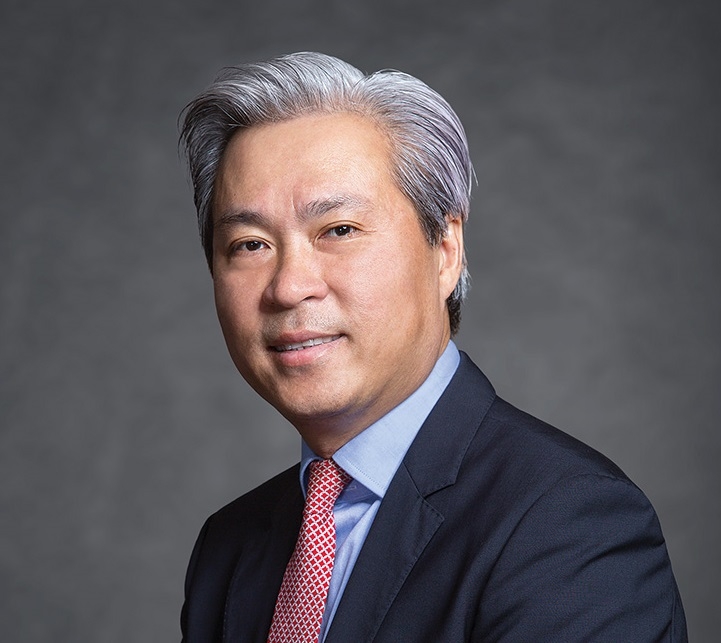VinaCapital raising nests for FDI capital
 |
| Don Lam - Co-founder and CEO, VinaCapital |
This includes addressing issues such as land, electricity, labour, and other areas critical to attracting high quality investment that creates good jobs and enables Vietnam to grow in a vibrant and sustainable way. Among them are two key focus areas: connectivity and ease of doing business. Connectivity between localities should be a critical part of inter-regional economic planning. The development of transportation infrastructure like roads, waterways and seaports, railways, and airports will improve trade flow and reduce logistics costs. Also, greater attention should be paid to the linking industrial areas to areas where the goods produced are exported.
These two areas in turn need to be better connected with cities and satellite residential areas. This hub-and-spoke model will enable workers and experts to live with their families in urban areas with the healthcare and education options they desire while making it easier for them to commute to work.
Take Ho Chi Minh City for example. It is the commercial, financial, and cultural centre in the southern region and a magnet for foreign direct investment (FDI) as well as a hub for overseas experts who work in the city and neighbouring provinces. However, its connectivity to surrounding provinces is poor. It takes 2-3 hours to get from downtown to surrounding localities, if there is no traffic congestion. Meanwhile, it takes 3-5 hours by car to reach the Mekong Delta. A long commute is a waste of time, energy, and money, and it presents a significant obstacle to attracting greater investment to the broader region.
It needs to be more convenient to get from the city to the new airport under construction in Long Thanh or to the deepwater seaport in Cai Mep – and from the areas around the city where manufacturing takes place to those logistics hubs. By focusing on transportation infrastructure, the government will not simply be enhancing connectivity, it will be creating the conditions to attract even more eagles to the nest.
In terms of the ease of doing business, Vietnam has made great strides in improving and simplifying investment procedures over the past few years, significantly shortening the time to complete applications and facilitating FDI inflows into the country. But more should be done.
For example, the government’s newly-established working group, which will actively promote foreign investment opportunities to multinational corporations planning to relocate operations as well as expedite the various approvals required to get FDI deployed and projects underway, will help instil greater confidence among foreign companies considering the many options of where to invest their capital.
Other countries in the region – particularly Thailand and Indonesia – have been very successful in attracting the kinds of high-quality investments into large projects that benefit their entire economies. Although Vietnam offers a number of advantages, it needs to do a better job at competing more effectively with these neighbouring peers.
Vietnam’s effective containment of the pandemic is a significant advantage. Foreign investors have been impressed that economic activity continued to grow when it fell in most other countries. However, this advantage will quickly disappear as life gradually returns to the new normal. That is why it is imperative that Vietnam acts with some urgency to fully leverage this remarkable achievement.
These efforts are not necessarily about the quantity of new investments, but the quality. Vietnam should be focusing on attracting companies that are reliable partners that will enable the country to continue to grow and evolve.
When Samsung established its operations around Hanoi, many of its suppliers followed them there, and today, the company and its suppliers employ thousands of Vietnamese. Vietnam should be targeting companies like Samsung and Apple that can similarly build out supply chains and further contribute to the country’s economic development.
VinaCapital and its local and foreign partners are very optimistic about the investment opportunities in Vietnam’s developing provinces. New economic zones with manufacturing, commercial, and residential projects as well as other key initiatives will contribute to the development of the region surrounding Ho Chi Minh City, and we expect to attract over $10 billion in total new investments in the near future.
What the stars mean:
★ Poor ★ ★ Promising ★★★ Good ★★★★ Very good ★★★★★ Exceptional
Related Contents
Latest News
More News
- Kurz Vietnam expands Gia Lai factory (February 27, 2026 | 16:37)
- SK Innovation-led consortium wins $2.3 billion LNG project in Nghe An (February 25, 2026 | 07:56)
- THACO opens $70 million manufacturing complex in Danang (February 25, 2026 | 07:54)
- Phu Quoc International Airport expansion approved to meet rising demand (February 24, 2026 | 10:00)
- Bac Giang International Logistics Centre faces land clearance barrier (February 24, 2026 | 08:00)
- Bright prospects abound in European investment (February 19, 2026 | 20:27)
- Internal strengths attest to commitment to progress (February 19, 2026 | 20:13)
- Vietnam, New Zealand seek level-up in ties (February 19, 2026 | 18:06)
- Untapped potential in relations with Indonesia (February 19, 2026 | 17:56)
- German strengths match Vietnamese aspirations (February 19, 2026 | 17:40)

 Tag:
Tag:




















 Mobile Version
Mobile Version